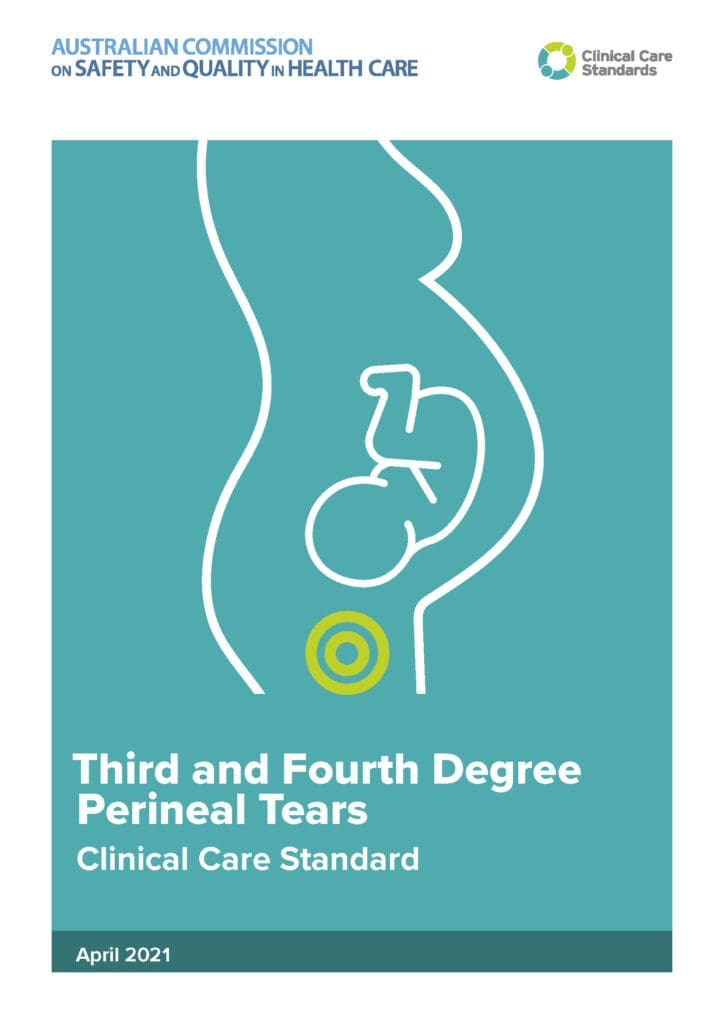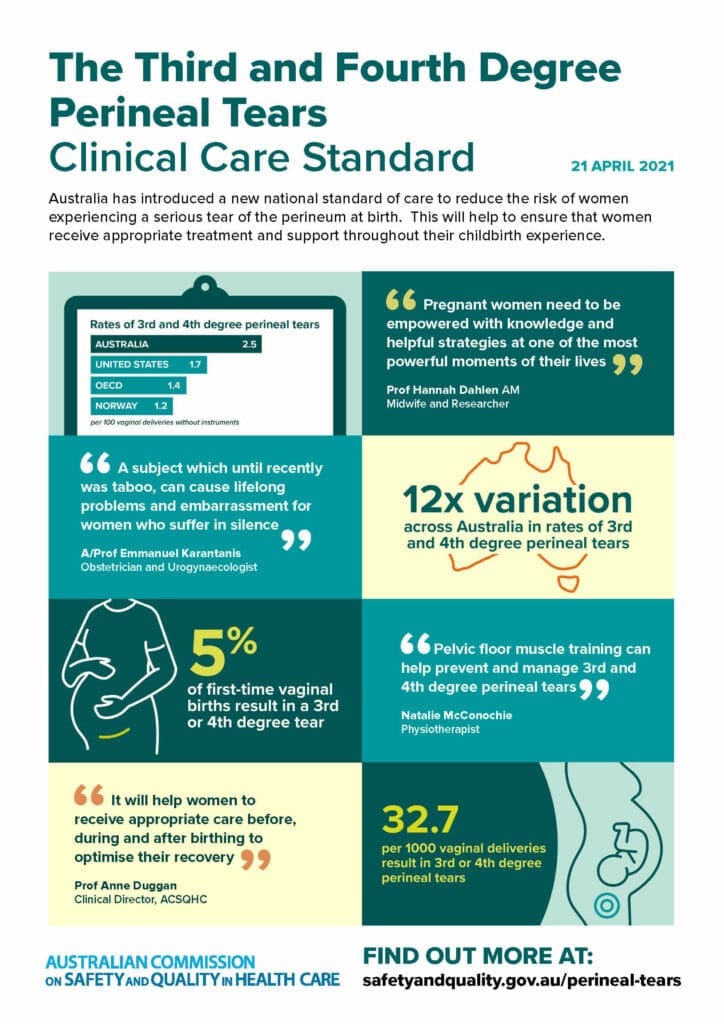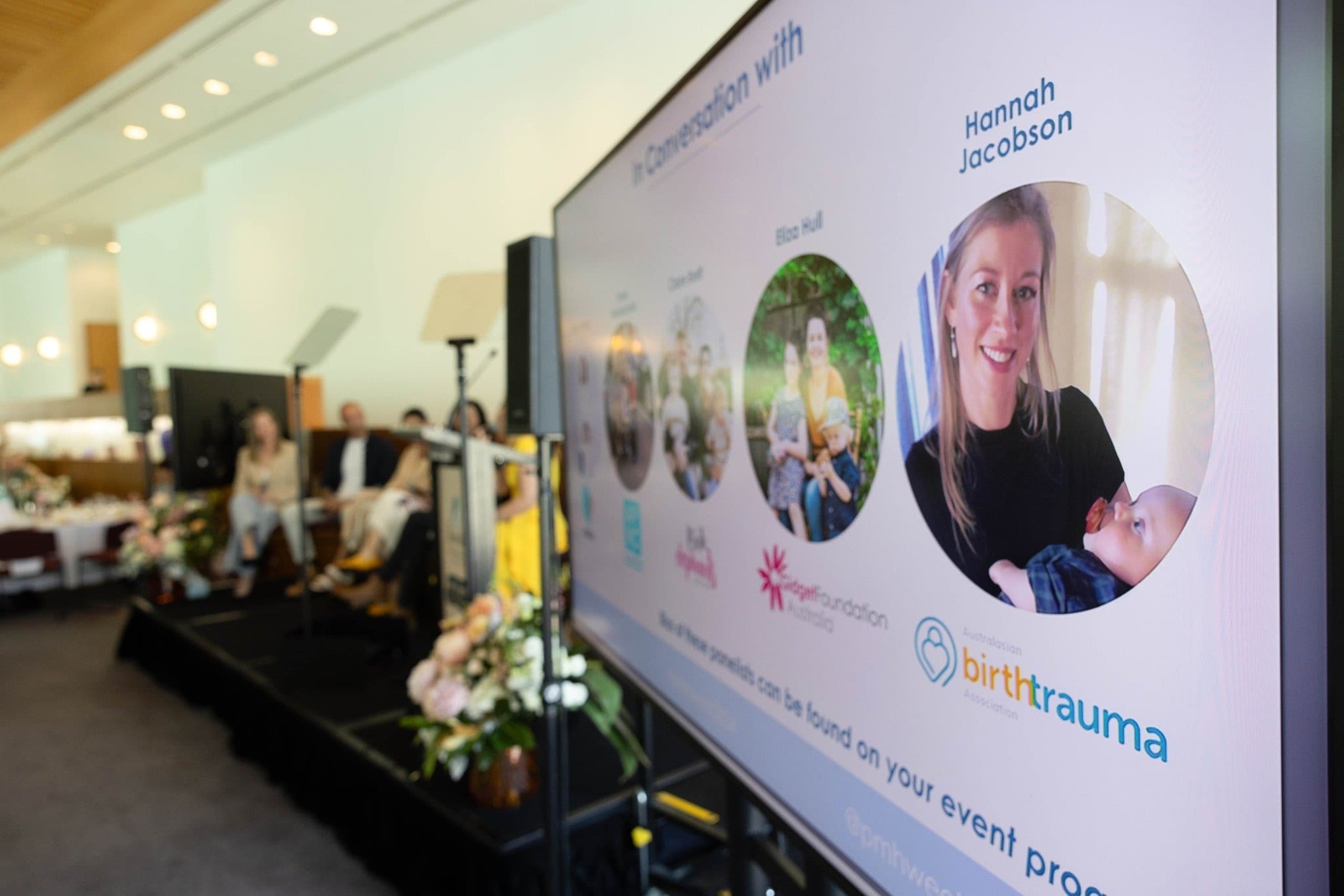24th April 2021
Media Release, A message from our CEO Amy Dawes
The ABTA is thrilled to see the first National Clinical Care Standard for Perineal Tears at childbirth released by the Australian Commission on Safety and Quality in Health Care.
The new Clinical Care Standard for Perineal Tears aims to ensure women are well informed and prepared for what they may experience with childbirth. It will also improve the quality of care, and ensure the best chance of recovery, for women who do experience such tears.

These standards use a woman-centred approach to inform women about the risk of a third or fourth-degree perineal tear and to support them to make decisions about the care they receive during pregnancy, labour and birth. It describes the care that women who experience a third or fourth-degree perineal tear should receive to optimise their physical and psychological recovery.
At ABTA we believe that the birthing parent should be at the centre of their care.
Every day we hear the far-reaching impact that these injuries can have not just on the birthing parent, but on the relationship with the infant, with their partner, their friends and family and their ability to care for their children or contribute to the workforce.
We recognise that at the time of birth the focus is almost entirely on the baby and this can lead to the birthing parent feeling like a spectator in their own birth.
The Third and Fourth Degree Perineal Tears Clinical Care Standard
Australia has introduced a new national standard of care to reduce the risk of women experiencing a serious tear of the perineum at birth. This will help to ensure that women receive appropriate treatment and support throughout their childbirth experience.
Third and Fourth Degree Perineal Tears Clinical Care Standard, Accessed 24th April 2021.

Through the unique peer support and advocacy, we’ve provided over the last 4 years, we have identified that alongside a multidisciplinary (including pelvic health physiotherapists) and continuity of carer approach to support families, the provision of unbiased and evidence-based information prior to the labour and birth is crucial for truly informed decision making.
By arming families with knowledge and choice, we hope to see a reduction in both physical and psychological trauma as well as vicarious trauma that can be experienced by birthing partners and our care providers.
For more Info on the guidelines visit Australian Commission on Safety and Quality in Health Care.
What are clinical care standards?
Clinical care standards help support the delivery of evidence-based clinical care and promote shared decision making between patients, carers and clinicians. They aim to reduce unwarranted variation and improve the appropriateness of care for a specific clinical condition or procedure, regardless of where people are treated in Australia. A clinical care standard contains a small number of quality statements that describe the level of clinical care expected for a specific clinical condition or procedure. Indicators are included for some quality statements to assist health service organisations to monitor how well they are implementing the care recommended in the clinical care standard.
A clinical care standard differs from a clinical practice guideline. Rather than describing all the components of care for a specific clinical condition or procedure, a clinical care standard focuses on key areas of care where the need for quality improvement is greatest.
About the ABTA
Birth is wonderful. But sometimes birth is frightening. Sometimes birth is physically damaging. Sometimes birth is nothing like you hoped or planned.
It’s hard to hear, but important to say: birth can be traumatic. But it doesn’t need to be, and there’s help if it is. We are a peer-led community dedicated to helping women and families from Australia and New Zealand prevent and heal from birth-related trauma. We do this through advocacy, education, research and peer-led support.
Petition Support –
Medicare subsidised pelvic health physiotherapy for birthing women
Support our petition calling for Medicare subsidised pelvic health physiotherapy for birthing women: http://chng.it/HBWX7J7SdN
To find more info from ABTA on perineal tears: birthtrauma.org.au/thinknatal/
Initiatives
Peer2Peer Meets
Peer2Peer Live Chat
ThinkNatal Educatio
For more information on ABTA contact marketing@birthtrauma.org.au or
Contact Amy Dawes on amy@birthtrauma.org.au











